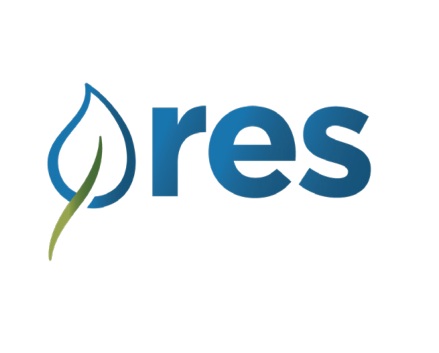
Scientist I - Ecology
At RES, we’re looking for purpose-driven individuals who are passionate about restoration and sustainability, and who want their work to make a lasting environmental impact. Our team members go above and beyond, bringing initiative, integrity, and a strong work ethic to every project. Collaboration is key—we thrive on teamwork, open communication, and diverse perspectives. In a field that constantly changes, we value those who are resilient, adaptable, and resourceful in the face of challenges. If you're intellectually curious, eager to learn, and ready to help restore ecosystems and protect natural resources, you’ll find your place here.
RES is looking for a Scientist I to join our team.
As a Scientist I at RES, you’ll support field data collection, environmental monitoring, and ecological assessments that provide the foundation of our environmental, ecological, and natural resource projects. Working under the direction of experienced scientists, you’ll contribute to meaningful work in the field—collecting and processing data, supporting and reporting field efforts, and gaining exposure to environmental regulations, ecosystems, and scientific practices.
This position is an entry-level opportunity ideal for a recent graduate or someone early in their career who is passionate about environmental science, ecology, or natural resources and wants to build a strong foundation for long-term growth.
This position is based in our Fort Lauderdale, FL office, and the selected candidate is expected to work from the office via a hybrid schedule. Some travel and overnight stays are anticipated. Approximately 60-70% of your time will be spent in the field, supporting projects across South and Central Florida.
Why You’ll Love This Job
-
You’ll be in the field, not just behind a desk. Whether you’re taking soil samples, surveying stream banks, or recording vegetation data, you’ll see firsthand Florida's varied ecosystems.
-
You’ll build real-world scientific skills. From GPS data collection to interpreting maps and recording results, you'll apply and expand your environmental knowledge daily.
-
You’ll grow with mentorship. You’ll work side-by-side with senior scientists, field leads, and project managers who are invested in helping you learn and succeed.
-
Your work will have an impact. Incorporation of high-quality environmental data early in a project will help facilitate decisions that incorporate environmental concepts such as avoidance and minimization.
A Day in the Life
Your day might start prepping field gear at the office to visit a project site— a wetland mitigation site, shallow marine habitat, or upland tree area, for example. On-site you may walk transects through a wetland, record plant species, conduct a marine benthic survey, and use a GPS to mark key locations. You’ll work as part of a small field team, following sampling protocols, maintaining equipment, and ensuring every data point is accurate and well-documented. Later, you might return to the office to enter your data into Excel or another database, help process site photos and maps, or contribute notes for a technical report.
You’ll learn how environmental regulations influence what we do, and begin to understand how habitat, water quality, landscape features and habitats intersect with project planning. Over time, you’ll become more familiar with regional flora and fauna, permitting frameworks, and real-world application of scientific principles in the field.
We would like to talk to you if you have many of the following:
- Bachelor’s degree in environmental science, biology, ecology, geology, natural resources, or a related field
- 0–2 years of field experience (can include internships, academic fieldwork, or volunteer work)
- Basic knowledge of scientific methods, data collection using GPS and/ or GIS tools, and safe field practices
- Familiarity with ecological concepts such as native species, soil profiles, or hydrology
- Ability and desire to work outdoors in varying conditions and terrain
- Open-water diving certification
You will thrive in this position if you:
- Possess strong verbal and written communication skills for reporting and data documentation
- Have attention to detail and a commitment to high-quality data collection
- Have strong work ethic and reliability in team-based fieldwork
What would make you stand out?
- Exposure to wetland, stream, marine, or habitat assessments
- ArcGIS experience
- Experience with field sampling equipment, inventories, or monitoring protocols
- Understanding of regional environmental regulations and permitting
Please note that the “Day in the Life” section is not intended to be an exhaustive list of job duties, but rather a representative snapshot of typical responsibilities and work experiences at RES.
RES is an Equal Opportunity Employer and a VEVRAA Federal Contractor. All qualified applicants will receive consideration for employment without regard to race, color, religion, sex, national origin, disability status, protected veteran status, or any other characteristic protected by law.
Create a Job Alert
Interested in building your career at Resource Environmental Solutions LLC? Get future opportunities sent straight to your email.
Apply for this job
*
indicates a required field
